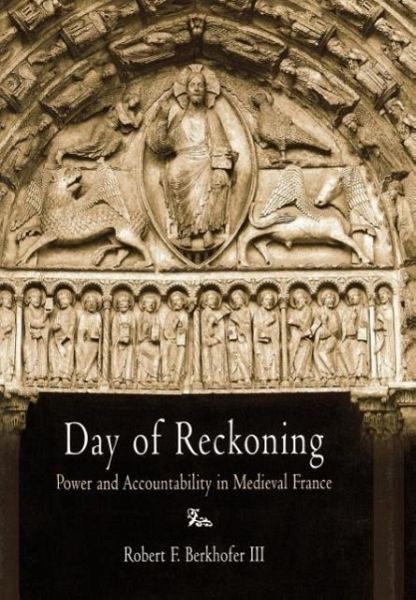
Day of Reckoning
The Countercultural Origins of an Industry

PAYBACK Punkte
34 °P sammeln!
Day of Reckoning Power and Accountability in Medieval France Robert F. Berkhofer III "Pointing to monastic management as a kind of workshop for the new administrative techniques used later by the centralized monarchies, Day of Reckoning is at once learned, intelligent, and original. Medievalists as well as those interested in the development of management in history should read this book with considerable interest and pleasure."--Alain Boureau, École des Hautes Études en Sciences Sociales "Interesting and wide-ranging. . . . The book is well-structured, lucidly written, and based on consider...
Day of Reckoning Power and Accountability in Medieval France Robert F. Berkhofer III "Pointing to monastic management as a kind of workshop for the new administrative techniques used later by the centralized monarchies, Day of Reckoning is at once learned, intelligent, and original. Medievalists as well as those interested in the development of management in history should read this book with considerable interest and pleasure."--Alain Boureau, École des Hautes Études en Sciences Sociales "Interesting and wide-ranging. . . . The book is well-structured, lucidly written, and based on considerable research in original sources."--Early Medieval Europe Day of Reckoning: Power and Accountability in Medieval France applies recent approaches to literacy, legal studies, memory, ritual, and the manorial economy to reexamine the transformation of medieval power. Highlighting the relationship of archives and power, it draws on the rich documentary sources of five of the largest Benedictine monasteries in northern France and Flanders, with comparisons to others, over a period of nearly four centuries. The book opens up new perspectives on important problems of power, in particular the idea and practice of accountability. In a violent society, medieval lords tried to delegate power rather than share it--to get their men to prosecute justice or raise money legitimately, rather than through extortion and pillage. Robert F. Berkhofer III explains how subordinates were held accountable by abbots administering the extensive holdings of Saint-Bertin, Saint-Denis, Saint-Germain-des-Prés, Saint-Père-de-Chartres, and Saint-Vaast-d'Arras. As the abbots began to discipline their agents and monitor their conduct, the "day of reckoning" took on new meaning, as customary meeting days were used to hold agents accountable. By 1200, written and unwritten techniques of rule developed in the monasteries had moved into the secular world; in these practices lay the origins of administration, bureaucratic power, and governance, all hallmarks of the modern state. Robert F. Berkhofer III teaches history at Western Michigan University. The Middle Ages Series 2004 280 pages 6 x 9 ISBN 978-0-8122-3796-2 Cloth $65.00s £42.50 ISBN 978-0-8122-0126-0 Ebook $65.00s £42.50 World Rights History, Business













